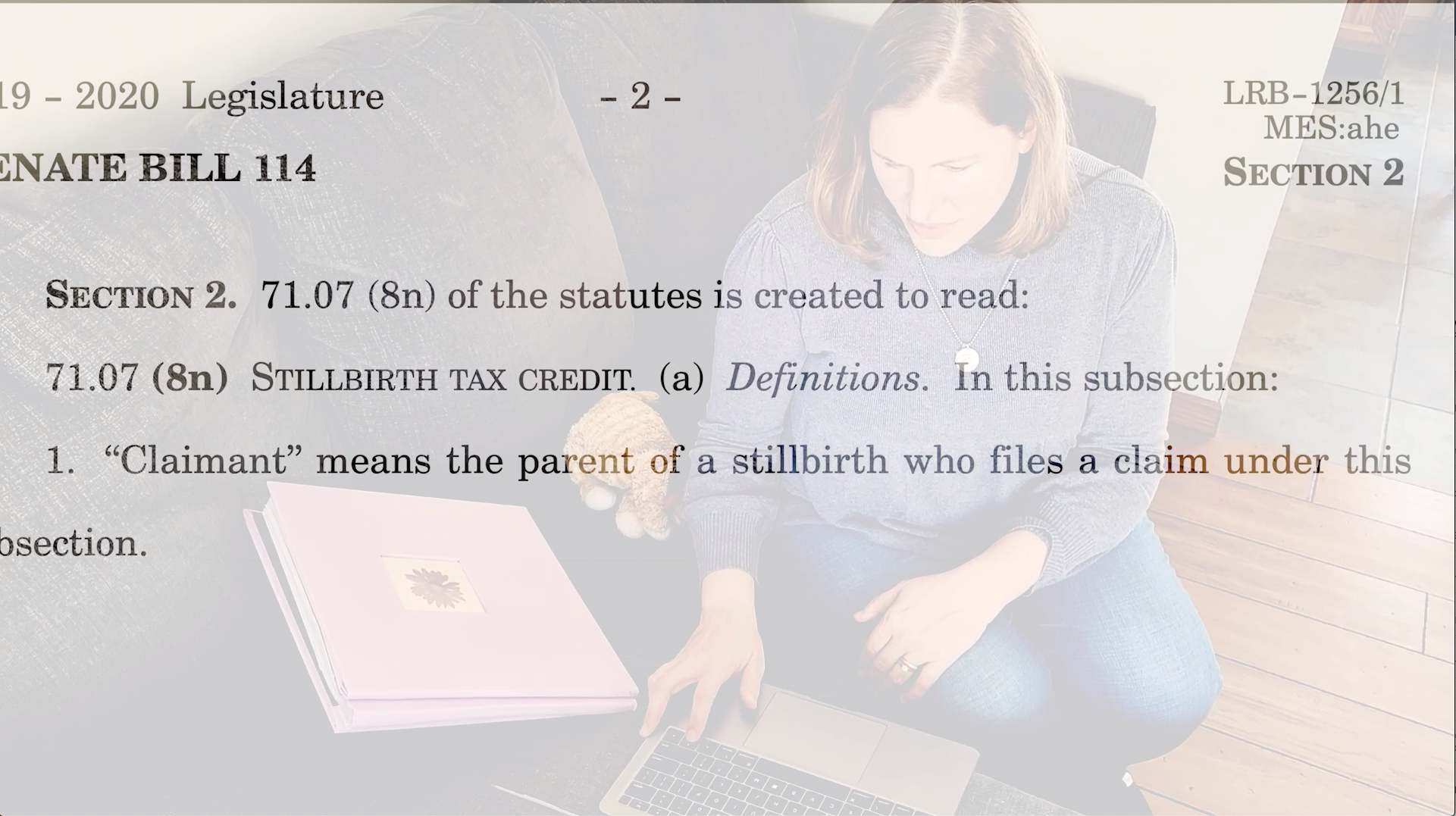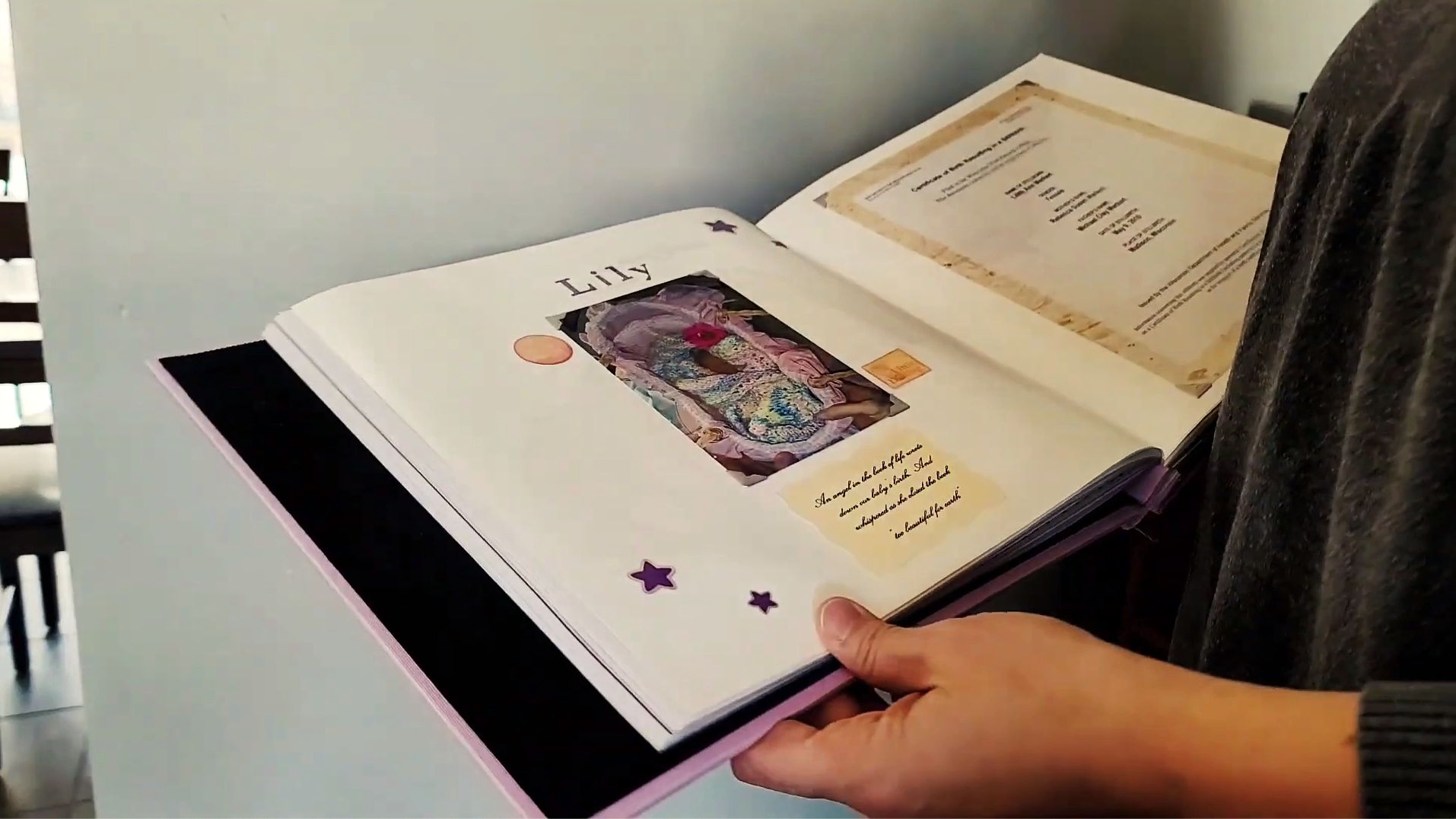MADISON, Wis— Instead of bringing home their bundle of joy, hundreds of Wisconsin families each year sadly deliver stillborn babies. It's why a bi-partisan supported bill is back on the 2021 docket. Several state legislators hope it can financially help those facing tremendous heartache cope with the unthinkable loss.
"It certainly wasn't anything that we weren't expecting. We had anticipated bringing home a baby girl," Rebecca Markert said about her first child, Lilly.
The infant delivered a little more than decade ago, stilllborn — at 20 weeks, one day.
"People really didn't know what to do or what to say to us, and for a long time, I wasn't even sure how to handle it. Should it be just chalked up as a miscarriage that everybody has, or was this something that felt so real and so painful?" the mother said about the emotional rollercoaster.

She says besides the stigma and the confusion, taxes became a surprising trigger after Lilly’s untimely death.
"Nobody expects to be sad when they're filing their taxes, but it's those questions that they ask you. You know, 'Did you have a significant life experience in the last year?' and of course you did. And when they asked how many children you have, that question, how many children do you have is so hard to answer as a bereaved parent," Markert said.
So as a bereaved parent, Rebecca soon learned other states, now ten in total, have created stillborn legislation changes.
It’s all because the states decided an old medically-based rule, just didn’t feel right.
"If you even have one breath, that baby counts, and would be eligible for a tax credit, but the stillborn child would not," Markert said.
Republican State Senator Alberta Darling says learning this news was painful.
"[They] do not have any recognition that they have been alive. And so that to me it is a tragedy and I think that we have to respect every child that's born," she said.
The legislator continues to champion a $2,000 stillborn tax credit bill.
It could help an average of roughly 350 Wisconsin families yearly facing the financial heartache of funerals, therapy and leave. Those things are not always covered by FMLA.
"You know, Minnesota, does this and we thought, 'Well if Minnesota can do it, so can Wisconsin,' so we're going to work very hard to get this past this session," Darling said.
Meanwhile, UW Health OB & leader of the hospital's infant loss program, Dr. Kristen Sharp, says she is concerned as COVID-19 continues, state stillbirth numbers could climb.
"I wouldn't doubt if we do," Dr. Sharp said.
In fact, a 2020 report in the journal, 'Nature,' found stillbirths increased from 14 per 1000 births before the country went into lockdown to 21 per 1000 births by the end of May — a rise of 50%.

"So things like decreased movement of your baby which people pre-Covid I don't think they would think twice to say, 'Hey, I need to go get checked out make sure everything is okay.' But I think that worry of being exposed to COVID made people less likely to pursue care and unfortunately, in some of those cases will will result in a loss," Sharp said.
Sharp cares deeply about helping grieving parents, because she knows first hand the pain. She underwent her own loss in 2013 and wants anyone who has experienced a stillborn birth, to know this.
“Just because that baby never took a breath or never had a heartbeat didn't mean that that baby wasn't there," she said.
As Markert hopes this third time around, the legislation she strongly believes in, finally passes.
"I just don't want any mom to have to go through this alone…. and this [bill] could help," she said.
Learn more about the State Senate Bill 114, here, and about UW's Infant Loss Center, here.



